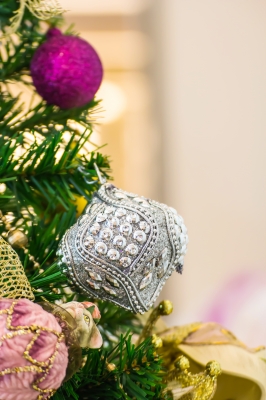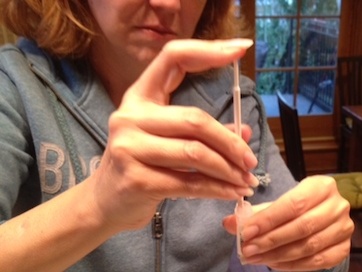Christmas always conjures up memories of Christmases past. This year for the first time, I also wondered about the holiday scene in the home of my first family.
I never knew my biological family so I have no idea how they spent the holidays. Last year was the year I became an enlightened adoptee. I uncovered facts about my birth mother, Lillian, and her four other children, my three half brothers and half sister. I never knew they existed until a few months ago.
What a discovery! Each time I talked to a relative or friend of the family, I learned something new about my mother or siblings. Every time I turned up a new detail, no matter how small, I felt a sense of satisfaction. A picture of this family began to form in my mind.
Of course, some of the facts were painful. Only two of my siblings are still living and Lillian is also gone. Twice divorced, my mother was only 48 years old when she died of breast cancer 30 years ago.
As I’ve written before, we lived parallel lives 35 miles apart in the Chicago area. My adoptive family never crossed paths with my biological family.
I grew up with my parents, Claire and Bob, and sister, Melissa, in a working-class neighborhood of modest bungalows on Chicago’s southwest side. Melissa and I never knew we were not our parents’ biological daughters but we knew something was different. None of the other kids our age had parents old enough to be their grandparents.
I remember nice, quiet Christmases, just the four of us at home. We always had artificial trees. The one I remember the most was a silver tree, which we put up in the living room and covered with ornaments and garland. Claire painstakingly set up a Christmas village under the tree, with decorative villagers, ice skaters, animals and other characters on a bed of white tissue paper. Bob put colorful lights up in the front windows of our bungalow.

We opened our presents on Christmas Eve. Once in a while, we would attend midnight mass but more often, we went to church on Christmas morning. Christmas was one of the few times we ate dinner in the dining room, which was packed with formal dark mahogany furniture, with a chandelier over the table. Baked ham or kielbasa often appeared on the holiday table. It wasn’t fancy but it was always tasty. My parents were not drinkers but they made an exception on Christmas. They served Mogen David at the table in fancy crystal goblets.
Thirty-five miles away, my biological family celebrated Christmas in a modest house in Northbrook. I have faded photos of Lillian with her children standing in front of a green Christmas tree decorated with shiny ornaments and silver tinsel. How noisy must it have been on Christmas day in a house with four excited kids! I imagine it was a little rowdier in Northbrook than it was on the southwest side. All those boys! I never had brothers. What would it have been like to grow up with boys? They were a tight-knit bunch of hard-playing kids, according to my sister, Sissy, who was a tomboy back then.
What was it like in their house on Christmas? Was it chaotic? Fun? Messy? What did they fight about? What did they have for dinner? My imagination will have to make up for my not having been there.
I cherish what I have, the memories of Christmas in Chicago with Claire, Bob and my wonderful sister, Melissa. Blood and genes did not tie us together. The powerful and loving bonds were formed over years of living together and sharing good times, bad times and thousands of ordinary moments.


